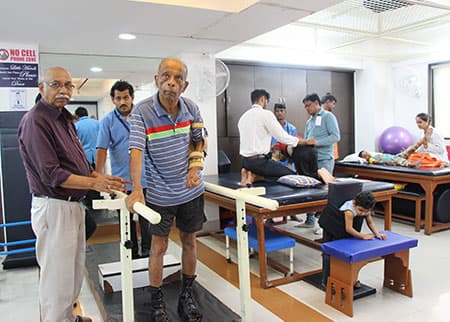Every person with a neurological condition presents differently. Physiotherapy is thus focused on the condition and symptoms. The nervous system is highly complex, and includes the brain, spinal cord, and peripheral nerves. Damage to the nervous system from either injury or disease can lead to difficulty in controlling movements, affected sensations, speech, swallowing, vision, cognition, and bowel and bladder control. Aims of physiotherapy are:
Rehabilitation
Assists in movement restoration, increased muscle strength, endurance, coordination & balance. Helps reduce spasticity & increase joint range of motion & prevent contractures.
Maximising Independence
Physiotherapy helps children with disabilities achieve developmental milestones, improve activities of daily living, maximize function and prescribe devices to aid with tasks that have become difficult.
Systemic Improvement
Physiotherapy helps improve lungs and cardiorespiratory functions in order to reduce fatigue & keep lungs clear. It also helps in slowing down the physical deterioration or progression of the condition.
Neurorehabilitation facilitates neural plasticity and improves neural connectivity. Physiotherapy as a part of neurorehabilitation helps stimulate the injected bone marrow-derived cells and guides them to target damaged areas of the brain, where the bone marrow-derived cells need to exert their actions. It also stimulates the nerve cells and the supporting cells in the brain and spinal cord to function at their optimum capacity, by releasing growth factors, improving oxygenation and increasing blood supply. Once cells are regenerated, goal directed physiotherapy helps the regenerated cells to function optimally and develop connections, thus improving motor functions. Thus physiotherapy helps in the repair of damaged areas of the brain and spinal cord.

